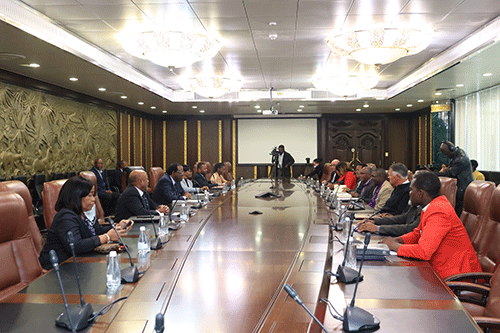Popular Democratic Movement (PDM) president McHenry Venaani has described Namibia housing situation as distressing, specifically informal settlements that he said is “shocking”. He made these remarks in the National Assembly this month while motivating his motion for the house to debate alternative housing financing schemes.
“Currently, there are 285 informal settlements in towns across Namibia, meaning 40% of its urban inhabitants or 216 000 urban households are informally settled, which is indicative of the high urbanisation rates across the country. The living conditions in these informal settlements can at best be described as shocking, deplorable, and intolerable,” he labelled.
Venaani stated residents of informal settlements often live without water, sanitation facilities, without security of tenure, and in constant fear of eviction.
He, therefore, highlighted the right to adequate housing, which he said like many other economic, social, and cultural rights, is recognised in the Namibian constitution: “The right to adequate housing for residents of informal settlements, as noted earlier, is one of the most blatantly violated rights in the country. Yet, no claim to vindicate this right has hitherto been made.”
Moreover, the demand for affordable housing and land in the city, towns and settlements by citizens has exhausted supply.
Venaani believes the existing formal housing market does not readily cater to the majority of Namibians by virtue of their income level. According to him, the clearest evidence of this predicament is found in the mushrooming of informal settlements, which are often unplanned and lead to socio-economic consequences such as disease outbreaks, lack of economic opportunities, and pollution.
“As the debate around spiralling rent cost shows, beyond low-income groups, housing shortages also affect lower and middle-income groups in Namibia,” stressed the PDM president.
Furthermore, Venaani noted this market failure is caused primarily by the limited availability of serviced land, thus severely constraining the ability of developers and others to construct houses.
In his motivation, he mentioned private sector informants stated the situation is further aggravated by among others the high costs of construction materials, labour, high land surveying and bulk servicing costs and inadequate finance options. In this vein, he noted that access to finance in Namibia remains the biggest challenge for market entry and the scalable growth of businesses and housing.
“The time has come for this house to interrogate the housing financing model of this country and come up with alternative financing mechanisation that will unlock Namibia’s ability to house all her residents with adequate housing infrastructure,” he said.
In his recommendations, Venaani said Namibia should remove the monopoly over servicing land, as a competitive market would both increase its availability and reduce its price.
It will ensure the establishment of allocation mechanisms and calibrated housing grants based on means testing and household profiling. Venaani concluded that State funding should be focused on land development as opposed to housing production.


